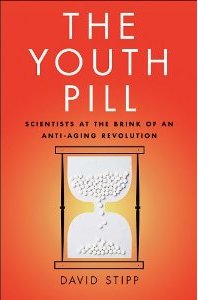November 19th, 2010 by John Mandrola, M.D. in Better Health Network, Health Tips, News, Research
No Comments »

“Hey…where did those cupcakes go?”
Like a never-ending western North Carolina climb where each switchback reveals another uphill, and the finish is shielded by tall pines, the struggle to lose weight and to stay lean is incessant.
In wrestling weight gain, competitive cyclists share the same mat as “regular” Americans. Like jockeys, all competitive bike racers strive for maximal leanness. It’s physics: Weigh less and the same number of watts push you farther and faster, especially when going uphill or accelerating from a slow speed. Remember those velocity problems in Physics 101?
But is it conceivable that losing weight — even if accompanied by lower cholesterol levels — could be detrimental to long-term wellness? Obviously, the question answers itself.
Unless your Internet connection has been interrupted in the last few days, you have probably heard of the “Twinkle diet.” Kansas State University nutrition professor Mark Haub tested the hypothesis that if he reduced his daily calorie consumption from 2600 to 1800 he would lose weight. Read more »
*This blog post was originally published at Dr John M*
July 17th, 2010 by Harriet Hall, M.D. in Better Health Network, Book Reviews, News, Opinion, Research
No Comments »

 Wouldn’t it be great if we could find a way to prolong our lives and to keep us healthy right up to the end? Ponce de León never found that Fountain of Youth, but science is still looking. What are the chances science will succeed? How’s it doing so far?
Wouldn’t it be great if we could find a way to prolong our lives and to keep us healthy right up to the end? Ponce de León never found that Fountain of Youth, but science is still looking. What are the chances science will succeed? How’s it doing so far?
In his new book The Youth Pill: Scientists at the Brink of an Anti-Aging Revolution, David Stipp tries to answer those questions. From the title of the book, I expected hype about resveratrol or some other miracle pill, but instead it is a nuanced, levelheaded, entertaining, informative account of the history and current state of longevity research. It makes that research come alive by telling stories about the people involved, the failures and setbacks, and the agonizingly slow process of teasing out the truth with a series of experiments that often seem to contradict each other.
Anti-aging can mean several things. Extending the average lifespan is not the same as extending the maximum lifespan. Extending lifespan is not the same as preventing the degenerative changes characteristic of aging. Read more »
*This blog post was originally published at Science-Based Medicine*




 Wouldn’t it be great if we could find a way to prolong our lives and to keep us healthy right up to the end? Ponce de León never found that Fountain of Youth, but science is still looking. What are the chances science will succeed? How’s it doing so far?
Wouldn’t it be great if we could find a way to prolong our lives and to keep us healthy right up to the end? Ponce de León never found that Fountain of Youth, but science is still looking. What are the chances science will succeed? How’s it doing so far?







